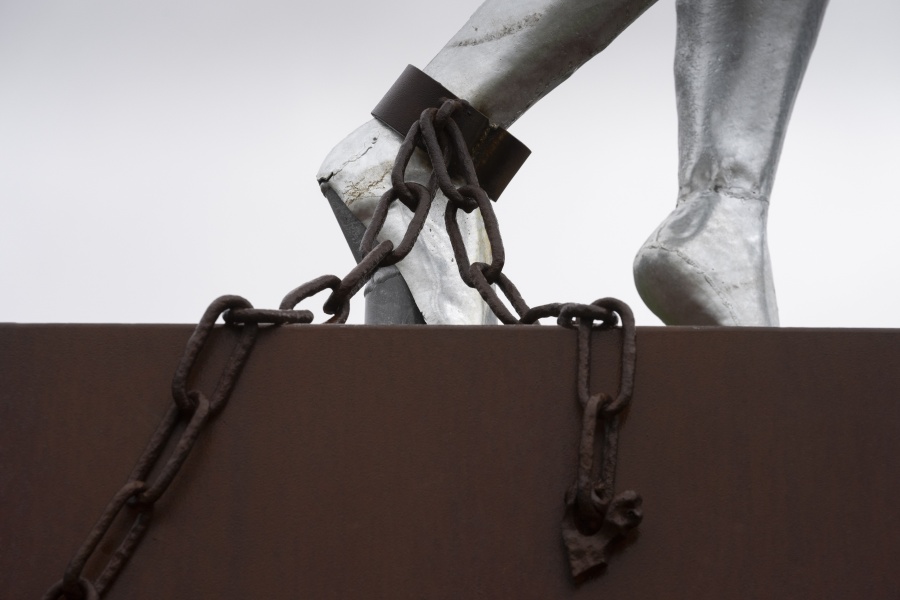THE HAGUE, Netherlands (AP) — Dutch Prime Minister Mark Rutte apologized Monday on behalf of his government for the Netherlands’ historical role in slavery and the slave trade, despite calls for him to delay the long-awaited statement.
“Today I apologize,” Rutte said in a 20-minute speech that was greeted with silence by an invited audience at the National Archive.
Ahead of the speech, Waldo Koendjbiharie, a retiree who was born in Suriname but lived for years in the Netherlands, said an apology was not enough.
“It’s about money. Apologies are words and with those words you can’t buy anything,” he said.
Rutte told reporters after the speech that the government is not offering compensation to “people — grandchildren or great grandchildren of enslaved people.”
Instead, it is establishing a 200 million-euro ($212 million) fund for initiatives to help tackle the legacy of slavery in the Netherlands and its former colonies and to boost education about the issue.
Rutte apologized “for the actions of the Dutch state in the past: posthumously to all enslaved people worldwide who have suffered from those actions, to their daughters and sons, and to all their descendants into the here and now.”
Describing how more than 600,000 African men, women and children were shipped, mostly to the former colony of Suriname, by Dutch slave traders, Rutte said that history often is “ugly, painful, and even downright shameful.”
“They were wrenched from their families and stripped of their humanity. They were transported, and treated, like cattle. Often under the governmental authority of the Dutch West India Company,” the prime minister said.
Rutte went ahead with the apology even though some activist groups in the Netherlands and its former colonies had urged him to wait until July 1 of next year, the anniversary of the abolition of slavery 160 years ago. Activists consider next year the 150th anniversary because many enslaved people were forced to continue working in plantations for a decade after abolition.
“Why the rush?” Barryl Biekman, chair of the Netherlands-based National Platform for Slavery Past, asked before the prime minister’s address. Some of the groups went to court last week in a failed attempt to block the speech.
Rutte referred to the disagreement in his remarks Monday.
“We know there is no one good moment for everybody, no right words for everybody, no right place for everybody,” he said.
Rutte’s gave his speech at a time when many nations’ brutal colonial histories have received critical scrutiny because of the Black Lives Matter movement and the police killing of George Floyd, a Black man, in the U.S. city of Minneapolis on May 25, 2020.
The prime minister’s address was a response to a report published last year by a government-appointed advisory board. Its recommendations included the government’s apology and recognition that the slave trade and slavery from the 17th century until abolition “that happened directly or indirectly under Dutch authority were crimes against humanity.”
The report said that what it called institutional racism in the Netherlands “cannot be seen separately from centuries of slavery and colonialism and the ideas that have arisen in this context.”
Dutch ministers fanned out Monday to discuss the issue in Suriname and former colonies that make up the Kingdom of the Netherlands — Aruba, Curacao and Sint Maarten as well as three Caribbean islands that are officially special municipalities in the Netherlands, Bonaire, Sint Eustatius and Saba.
The government has said that the year starting July 1, 2023, will be a slavery memorial year in which the country “will pause to reflect on this painful history. And on how this history still plays a negative role in the lives of many today.”
That was underscored earlier this month when an independent investigation found widespread racism at the Dutch Foreign Ministry and its diplomatic outposts around the world.
In Suriname, the small South American nation where Dutch plantation owners generated huge profits through the use of enslaved labor, activists and officials say they have not been asked for input, and that’s a reflection of a Dutch colonial attitude. What’s really needed, they say, is compensation.
The Dutch first became involved in the trans-Atlantic slave trade in the late 1500s and became a major trader in the mid-1600s. Eventually, the Dutch West India Company became the largest trans-Atlantic slave trader, said Karwan Fatah-Black, an expert in Dutch colonial history and an assistant professor at Leiden University.
Dutch cities, including the capital, Amsterdam, and port city Rotterdam already have issued apologies for the historic role of city fathers in the slave trade.
In 2018, Denmark apologized to Ghana, which it colonized from the mid-17th century to the mid-19th century. In June, King Philippe of Belgium expressed “deepest regrets” for abuses in Congo. In 1992, Pope John Paul II apologized for the church’s role in slavery. Americans have had emotionally charged fights over taking down statues of slaveholders in the South.
Now the Netherlands has joined their ranks.
“We who live in today’s world must acknowledge the evils of slavery in the clearest possible terms, and condemn it as a crime against humanity,” he said.



